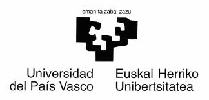In our program we assume the latest theoretical approaches with regards to research in specialized discourse and terminology, and we have adopted the methodological consequences deriving from those theoretical approaches. Three main approaches have been developed since the 90s from the critiques made to the classical theory (Wüster´s general Theory of Terminology). The critiques have come from various perspectives: social (socioterminology (Gaudin 1993, 1995; Boulanger 1991), cognitive ((Sociocognitive Theory of Terminology (Temmerman 2000)), and linguistic (Communicative Theory of Terminology) (Cabré 1999, 2001)). The new theories have four basic methodological consequences:
- Terminology work requires to start from description: linguistic units of specialized values (e.g., terms) are to be analyzed within texts. Interest in the research on terminology goes beyond the study of terms.
- Variation is acknowledged: linguistic units that have specialized values are analyzed in texts that have been created in pragmatic contexts that involve different specialization degrees.
- Diachronic studies are relevant. Concepts evolve over time and, due to the evolution, the form of terms also changes over time. Specialized registers are the result of discourse traditions.
- Linguistic application must be adequate. In other words, applications must be adequate for the task or goal they have been designed for and they must be adequate for the users.
These conclusions lead us to adopt the methodology we are adopting in the TSE:
- Specialized discourse types of the fields are developed by the epistemic-discursive communities that work and use the language in those areas, that is to say, the teachers that use the Basque language to develop and transmit it, researchers, and students.
- Thus, any initiative that aims at helping the development of the registers that are used in such discourses must start from the description of such registers, and for that, the fundamental resources are the texts that have been produced by teachers and researchers and the terminology they use.
- Specialized language resources, among them terminology, yoke three aspects: form, meaning and pragmatics.
- The rules that we use for creating specialized elements are the same as the ones that are used for forming elements of the general language. Thus, linguists may help the specialists find the right and adequate linguistic forms. However, only experts of the fields have the necessary knowledge about the semantic-pragmatic side of the terms.
- Thus, the fixation and normalization of specialized expressions and of terminology is an interdisciplinary work that must be carried out by experts in the field, linguists, and technicians that are specialized in language technologies.
In the program Weaving Terminology Networks (TSE) we extract the terminology of the subject that each participant has selected, and the teachers themselves validate the term candidates that have been extracted from their texts. Besides, the teachers provide the corresponding terms of the Basque terms in other languages. The expert teachers are the most adequate agents to do this task. This procedure allows us to describe the real terminology employed in the subjects of the different majors that are offered in the University of the University of the Basque Country UPV/EHU. Description must be the starting point of any normalizing initiative of terminology. Only after the description may be decided whether harmonization or intervention initiatives are necessary, but keeping in mind that the terminology-model that we adopt is always unstable or variable: it should help reduce the asystemmatic variation or dispersion, but functional variation should be admitted, promoted and fixed.










